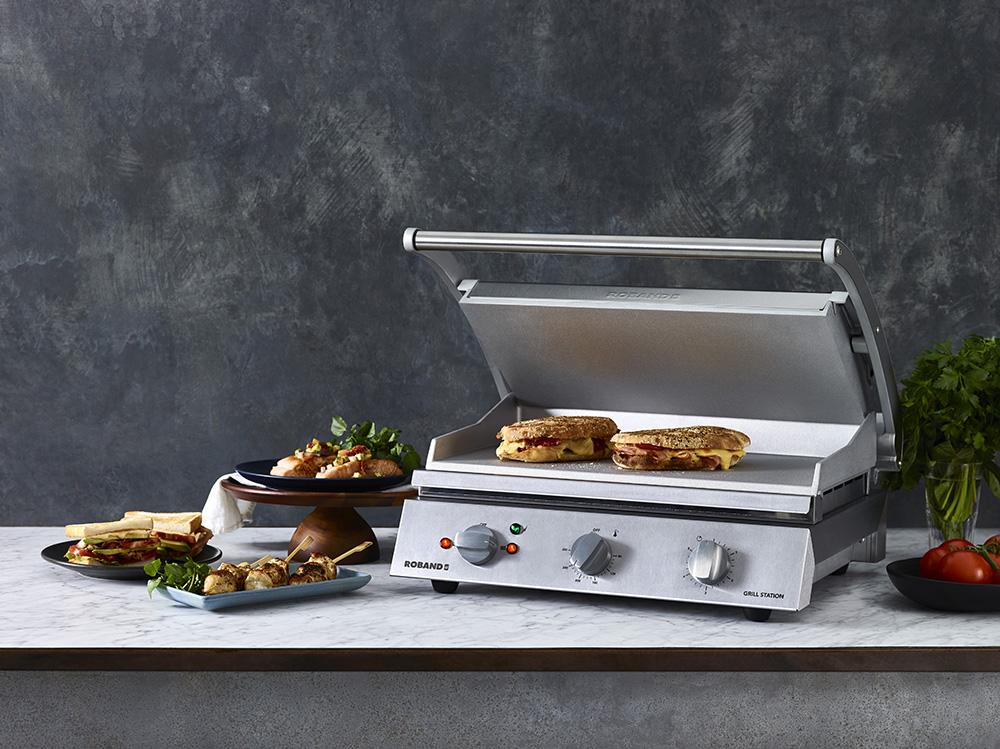
GDK / Roband Grill Stations
German Doner Kebab (GDK) is a fast casual kebab chain, specialising in doner kebabs. Tracing its heritage to a restaurant in Berlin, Germany in 1989.
The company operates more than 163 restaurants throughout the United Kingdom, Sweden, North America and the Middle East.
How Metcalfe helped GDK
Problem
GDK’s main issue was speed of service, due to the surge in food app takeaway orders and reducing their equipment portfolio to make space for delivery courier pick up.
They wanted to upgrade to more reliable high-performance, long-lasting equipment, whilst simplifying operator equipment interaction.
A key requirement was exact re-heating times for speciality breads, regardless of variable thickness of each individual slice.
They imported cheap grills, which were non-CE compliant, which had a non-friction hinge, meaning it had an unsupported heavy upper cast iron cook plate. Although dangerous for the operator, the main advantage was that the weight and heat of the upper plate would both compress the bread and "patternate and laminate" the bread on the outside. This had 2 main advantages;
The bread would be compressed evenly, thus strengthening the outside surface structure of the bread, preventing the bread casing from splitting when being filled with kebab meats, cabbage/salad etc
The pattern produced by the cook plate (used across Germany and Dubai) would cause a "lamination" effect to the exterior by caramelising the naturally occurring sugars, so the bread looked both aesthetically pleasing and unique to GDK
Solution
Roband Grill Stations complete with PTFE sheets and grill Pattern Plates.
A bespoke solution for GDK was for our engineers to increase the tension on the upper lid spring to compress uneven bread thicknesses, whilst maintaining a supported upper lid load for Health & Safety adherence.
The cooking time of the breads was significantly reduced from 4 minutes to just 40 seconds.
Grill Pattern Plates positioned on top of PTFE Sheets produced a similar bread pattern to the previous grills, laminated the breads and also matched their global marketing/menu images.
Result
The introduction of the Roband Grill Stations meant that the pass-through conveyor toasters could be removed from each site as wraps were now being produced in 40 seconds.
Radiated heat was significantly reduced from the prep area, producing a better working environment for the operator.
Kitchen hazards were reduced and reliability of equipment improved.
Significantly reduced power consumption from 9kw (3 non-CE grills) to either 5.9kw (2 x GSA8 grill stations) or 4.4kW (2 x GSA6 grill stations).